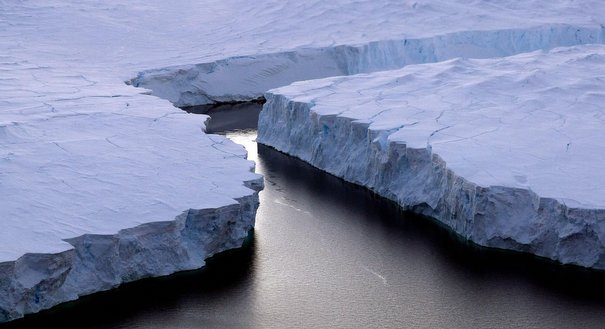The Crimea crisis has compelled many Western states to re-evaluate strategic cooperation with Russia, not least of all in the Arctic region. This re-evaluation, combined with fear that Russian policy in Crimea is an admittance of grander territorial ambitions, has the potential to reshape national approaches in the Arctic.
Territorial grabs in the Arctic are not a recent development; in the first quarter of the 20th century, Canada, the Soviet Union, and even the United States claimed special rights to certain areas. The melting of the Arctic ice, however, has made the Arctic’s seabed energy resources and maritime routes increasingly accessible—and lucrative.
Countries bordering the Arctic have been preparing submissions to the UN Commission on Limits of the Continental Shelf, laying claims to Arctic territory. Norway became the first country to have its claim to Arctic territory approved in 2009. Russia, which considers the Arctic to be a “strategic resource base,” is expected to submit a revised claim to parts of the Lomonosov Ridge in 2014.
Resource and territorial disputes are not outdated political concerns in the Arctic. The revival of military activity in the area aggravates these disputes. By reinforcing naval and air contingents, the Russian military in particular will boost its presence in the Arctic in 2014. Cooperation among Arctic states therefore is essential to reducing the potential for political, economic, or small military clashes. The fallout from the Crimea crisis, however, could spoil elements of Arctic cooperation.
In the past, this cooperation has taken the form of emergency and disaster preparedness, scientific exploration, inter-military information exchange, and military exercises such as Cold Response (Norway-led with Russian guests), Loyal Arrow (NATO, Russia excluded), and Northern Eagle (the United States, Russia, Norway).
Russian policy toward Crimea has affected military cooperation most of all in the Arctic. The Norwegian government, which has a relatively successful history of Arctic cooperation with Russia and was originally in favor of preserving bilateral cooperation, announced on March 26 its suspension of bilateral military activities. Norway and the United States will not be participating in the planned Northern Eagle military exercise.
Canada and the United States also have explicitly suspended bilateral military activities with Russia. The Wall Street Journal reports that the United States has shelved cooperation with Russia on an Arctic submarine rescue partnership and a bilateral meeting on Coast Guard operations in the Arctic.
The mid-March military exercise Cold Response was conducted as planned, for the most part, despite the Crimean crisis. Sixteen nations—plus Russian guests—conducted combat operations in an Arctic environment in Northern Norway. If Cold Response were held after Norway’s March 26 announcement, Norway’s amended position could have precluded Russian participation.
While bilateral military cooperation is on hold, work in non-military related fora should be intensified. Formats like Arctic Council and the Barents Euro-Atlantic Council are specifically non-military. It seems that, for now, cooperation and information sharing in matters of the environment, shipping, and economic activities will continue.
On March 19, Foreign Minister of Iceland Gunnar Bragi Sveinsson said in a Facebook post that the situation in Ukraine has yet to affect cooperation among Arctic nations, but that the behavior of individual states has the potential to corrupt the work. Norway, the Wall Street Journal reports, intends to continue search-and-rescue cooperation with Russia in the Arctic. Canada, chair of Arctic Council until 2015, is hosting a Council meeting this week. All members, including Russia and the United States, will attend.
Arctic engagement should focus on resource exploration along the Northern Sea Route, energy extraction, environmental research and response, and search and rescue missions. An example of future engagement is the June 2014 “Arctic Exercise” of the Arctic Council’s Emergency Prevention and Preparedness Response working group. The exercise, planned to be held in in Murmansk, Russia, will simulate a radiological emergency that occurs on a nuclear icebreaker.
The cessation of bilateral military relations with Russia should not spoil bilateral negotiations to settle border disputes, namely with Canada, Denmark, and the United States. Early resolution of border issues, the status of the Arctic, and the role of non-Arctic players will help states avoid potential clashes as resources become more available in the future.
To enable high-level and continued dialogue on developments in the Arctic, governments should appoint Arctic ambassadors. Denmark, Finland, Iceland, Russia, Sweden, all have Arctic ambassadors or a similar post. U.S. Secretary of State John Kerry announced in February of this year the intention to appoint an Arctic ambassador for the United States. Even Japan followed with an Arctic ambassador appointment in mid-March.
As the High North’s importance rises in the international political agenda, Arctic states have been cautious not to disturb the fragile mechanics of cooperation with grievances from the Crimea crisis. However, the crisis and anxieties about Russian territorial ambitions could inspire governments to take a more hard-liner approach to defense in the Arctic. Even as Western nations levy sanctions on and suspend bilateral military cooperation and exercises with Russia, engagement with Russia in the Arctic is inevitable and should be sustained. It would be unwise to create conditions that encourage militarization and put stability at risk in the Arctic.
Sarah Norris is an intern at the Carnegie Moscow Center.





